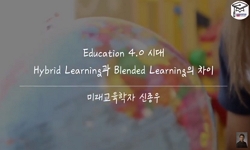여성의 노동시장 참여 증가 및 저출산 흐름과 맞물린 일 · 가정 양립의높은 시의성과 개연성을 고려하여, 본 연구는 한국여성가족패널조사 1~5차자료를 바탕으로 부부 데이터를 구축하고, ...
http://chineseinput.net/에서 pinyin(병음)방식으로 중국어를 변환할 수 있습니다.
변환된 중국어를 복사하여 사용하시면 됩니다.
- 中文 을 입력하시려면 zhongwen을 입력하시고 space를누르시면됩니다.
- 北京 을 입력하시려면 beijing을 입력하시고 space를 누르시면 됩니다.

기혼 여성과 남성의 가사노동시간 차이와 영향요인 분석 = Difference in housework hours between married women and men and their influence factors
한글로보기https://www.riss.kr/link?id=A104891413
- 저자
- 발행기관
- 학술지명
- 권호사항
-
발행연도
2017
-
작성언어
-
-
주제어
부부 ; 가사노동시간 ; 경제활동 참여 ; 한국여성가족패널 ; 차이 ; couple ; housework hours ; economic activities ; KloWF ; differences
-
KDC
337
-
등재정보
KCI등재
-
자료형태
학술저널
- 발행기관 URL
-
수록면
41-72(32쪽)
-
KCI 피인용횟수
7
-
비고
학회 요청에 의해 무료로 제공
- DOI식별코드
- 제공처
- 소장기관
-
0
상세조회 -
0
다운로드
부가정보
국문 초록 (Abstract)
여성의 노동시장 참여 증가 및 저출산 흐름과 맞물린 일 · 가정 양립의높은 시의성과 개연성을 고려하여, 본 연구는 한국여성가족패널조사 1~5차자료를 바탕으로 부부 데이터를 구축하고, 이들 개인의 인구사회학적 특성과 노동시장 참여 특성 간 연관성을 중심으로 여성과 남성의 가사노동시간차이 양상의 추세를 실증적으로 관찰하였다. 본 연구의 주요 분석결과에 따르면, 여성(부인)과 남성(남편) 모두 가사노동시간이 감소하는 경향을 보였으며, 남성의 여성에 대한 가사노동시간 비율은 미미하게 증가하는 것으로 도출되었으나 여성과 남성의 가사노동시간절대값 차이는 여전히 현격한 차이를 보이는 것으로 나타났다. 여성과 남성간 가사노동시간 차이는 모형 내에서 고려한 각 개인의 인구사회학적 특성변수와 노동시장 참여 특성 변수로 설명되는 부분(explained)보다는 설명되지 않는 부분(unexplained)의 비중이 대체적으로 증가하는 양상이 나타났다. 마지막으로 노동시장 참여 특성 중 비취업자 범주, 주당 평균근로시간40시간 이상이 평균 가사노동시간의 차이에 미치는 영향의 기여도가 가장높은 것으로 나타났다. 이러한 분석결과는 남편과 부인의 가사노동시간의종단적 양상을 제시함과 아울러, 일-가정 양립 정책이 사회경제적 여건을고려함과 동시에 보다 개인의 세부적 특성을 고려하여 미시적으로 추진되어야 함을 보여준다. 추가적으로, 개인의 인구사회학적 특성과 노동시장 참여 특성으로 설명되는 부분보다는 설명되지 않은 부분의 비중이 더욱 크게변화하고 있는 양상은 여성과 남성 간 가사노동시간 차이에 대하여 여성과남성 각 개인의 성 이데올로기가 미치는 영향을 심도 있게 분석할 필요가있음을 시사한다.
다국어 초록 (Multilingual Abstract)
Given the high probability of work-family compatibility associated with increased labor market participation of women and low birth rates, this study empirically investigated the relationship between the difference of housework hours between Korean co...
Given the high probability of work-family compatibility associated with increased labor market participation of women and low birth rates, this study empirically investigated the relationship between the difference of housework hours between Korean couple and the socioeconomic characteristics of the couple and labor market participation characteristics based on the 1-5th Korean Longitudinal Survey of Women and Families. According to the main analysis results of this study, both males(husband) and females(wife) showed a tendency to decrease housework hours, and the ratio of housework hours males to wives increased only marginally. However, the difference in the absolute value of housework hours for men and wives is still remarkable. The difference in housework hours between husbands and wives increased gradually from unexplained to explanatory variables in the regression model. Also we found that the effect of the non-employed categorical variable on housework hours is the highest among the labor market participation characteristics. These results show the longitudinal aspect of housework hours of husbands and wives, and suggests that the work-family reconciliation policy should be promotive in an aspect of micro-motivated considering the socioeconomic conditions and the individual s specific characteristics. Also, the pattern in which the ratio of unexplained part becomes large suggests that it is necessary to analyze in depth the effect of gender ideology on the difference of housework hours between women and men.
목차 (Table of Contents)
- I. 서 론
- Ⅱ. 이론 및 선행연구 고찰
- Ⅲ. 자료 및 방법
- Ⅳ. 분석결과
- Ⅴ. 결론
- I. 서 론
- Ⅱ. 이론 및 선행연구 고찰
- Ⅲ. 자료 및 방법
- Ⅳ. 분석결과
- Ⅴ. 결론
참고문헌 (Reference)
1 은기수, "한국 기혼부부의 가사노동분업" 한국인구학회 32 (32): 145-171, 2009
2 한경미, "취업주부의 시간사용과 영향요인" 9 (9): 171-190, 1991
3 한경미, "취업주부의 가사노동시간에 관한 연구" 7 (7): 1-13, 1989
4 김효정, "직업에 따른 기혼여성 재택근무자의 가사노동 시간관리전략에 관한 연구 : 전문직과 비전문직의 비교를 중심으로" 인제대학교 아동가족복지연구소 (창간) : 51-68, 2001
5 홍성희, "주부의 가사노동 및 여가시간 배분에 관한 체계론적 분석" 11 (11): 55-68, 1993
6 통계청, "여성고용동향"
7 허경옥, "부인과 남편의 가사 및 육아시간 결정요인 연구" 12 (12): 90-105, 1994
8 차성란, "부부의 성역할태도가 부부의 가사노동시간 및 노동공평성인지에 미치는 상호작용적 영향력" 36 (36): 139-152, 1998
9 이순미, "부부간 가사노동 분담에 대한 공평성 인지의 영향요인 연구: 기혼 취업여성을 중심으로" 한국가족학회 20 (20): 1-25, 2008
10 통계청, "맞벌이가구비율"
1 은기수, "한국 기혼부부의 가사노동분업" 한국인구학회 32 (32): 145-171, 2009
2 한경미, "취업주부의 시간사용과 영향요인" 9 (9): 171-190, 1991
3 한경미, "취업주부의 가사노동시간에 관한 연구" 7 (7): 1-13, 1989
4 김효정, "직업에 따른 기혼여성 재택근무자의 가사노동 시간관리전략에 관한 연구 : 전문직과 비전문직의 비교를 중심으로" 인제대학교 아동가족복지연구소 (창간) : 51-68, 2001
5 홍성희, "주부의 가사노동 및 여가시간 배분에 관한 체계론적 분석" 11 (11): 55-68, 1993
6 통계청, "여성고용동향"
7 허경옥, "부인과 남편의 가사 및 육아시간 결정요인 연구" 12 (12): 90-105, 1994
8 차성란, "부부의 성역할태도가 부부의 가사노동시간 및 노동공평성인지에 미치는 상호작용적 영향력" 36 (36): 139-152, 1998
9 이순미, "부부간 가사노동 분담에 대한 공평성 인지의 영향요인 연구: 기혼 취업여성을 중심으로" 한국가족학회 20 (20): 1-25, 2008
10 통계청, "맞벌이가구비율"
11 허수연, "맞벌이가구 여성과 남성의 가사노동시간에 관한 연구" 한국여성학회 24 (24): 177-211, 2008
12 지민웅, "맞벌이 임금근로자 부부의 가사노동시간은 상호 대체재인가? 법정근로시간단축제도 시행에 따른 시장노동시간의 변화를 이용하여" 한국여성경제학회 11 (11): 1-31, 2014
13 성지미, "맞벌이 여성의 시간 분배 결정요인" 한국노동연구원 6 (6): 1-30, 2006
14 이창순, "맞벌이 부부의 가사노동시간에 대한 연구" 사회과학연구원 40 (40): 29-54, 2014
15 김진욱, "근로기혼여성의 이중노동부담에 관한 실증연구: 가사노동분담에 관한 협조적 적응, 이중노동부담, 적응체계 가설의검증" 한국사회복지학회 57 (57): 51-72, 2005
16 Kamo, Y, "“He said, she said” : Assessing discrepancies in husbands'and wives' reports on the division of household labor" 29 (29): 459-476, 2000
17 Sanchez, L., "Women's and men's constructions of perceptions of housework fairness" 17 (17): 358-387, 1996
18 Bittman, M., "When does gender trump money? Bargaining and time in household work" 109 (109): 186-214, 2003
19 Blinder, A. S., "Wage discrimination : Reduced form and structural estimates" 8 : 436-455, 1973
20 Vanek, J., "Time spent in housework" 231 (231): 116-121, 1974
21 Castles, F. G., "The world turned upside down: below replacement fertility, changing preferences and family-friendly public policy" 13 (13): 209-227, 2003
22 Brines, J., "The exchange value of housework" 5 : 302-340, 1993
23 Stafford, K., "The effects of wife's employment time on her household work time" 11 (11): 257-266, 1983
24 Del Boca, D., "The effect of child care and part time opportunities on participation and fertility decisions in Italy" 15 (15): 549-573, 2002
25 Bronfenbrenner, U., "The ecology of human development: Experiments by design and nature" Havard University Press 1979
26 Jann, B., "The Blinder–Oaxaca decomposition for linear regression models" 8 (8): 453-479, 2008
27 Cook, K. S., "Social exchange theory" Sage Publications, Inc 1987
28 Molm, Linda, "Social Exchange and Exchange Networks, Sociological Perspectives on Social Psychology" Allyn & Bacon 209-235, 1995
29 Hiller, D. V., "Power Dependence and Division of Family Work" 10 : 1003-1019, 1984
30 Oaxaca, "On discrimination and the decomposition of wage differentials" 61 : 5-21, 1994
31 Goodnow, J. J., "Men, women and household work" Oxford University Press 1994
32 Blair, S. L., "Measuring the division of household labor : Gender segregation of housework among American couples" 12 (12): 91-113, 1991
33 Laurens C., "Married with Children :A Collective Labor Supply Model with Detailed Time Use and Intra household Expenditure Information" 102 (102): 3377-3405, 2012
34 Oaxaca, R., "Male–female wage differentials in urban labor markets" 14 : 693-709, 1973
35 Bianchi, S. M., "Is anyone doing the housework? Trends in the gender division of household labor" 79 (79): 191-228, 2000
36 Abdel‐Ghany, "Husband/Wife Differentials In Household Work Time : The Case of Dual‐Earner Families" 12 (12): 159-167, 1983
37 Walker, K. E., "Household work time: Its implication for family decisions" 65 : 7-11, 1973
38 Barnett, R. C., "Home-to-work spillover revisited : A study of full-time employed women in dual-earner couples" 56 : 647-656, 1994
39 Evertsson, M., "Gender ideology and the sharing of housework and child care in Sweden" 35 (35): 927-949, 2014
40 Kane, E. W., "Family status and criticism of gender inequality at home and at work" 72 (72): 1079-1102, 1994
41 Brines, J., "Economic dependency, gender, and the division of labor at home" 100 (100): 652-688, 1994
42 Kamo, Y., "Division of household work in the United States and Japan" 15 (15): 348-378, 1994
43 Sanik, M. M., "Division of household work : A decade comparison—1967–1977" 10 (10): 175-180, 1981
44 Treas, J., "Dividing the domestic : Men, women, and household work in cross-national perspective" Stanford University Press 2010
45 Aassve, A., "Desperate housework :Relative resources, time availability, economic dependency, and gender ideology across Europe" 35 (35): 1000-1022, 2014
46 Evertsson, M., "Dependence within families and the division of labor : Comparing Sweden and the United States" 66 (66): 1272-1286, 2004
47 Coverman, S., "Change in men's housework and child-care time, 1965-1975" 413-422, 1986
48 Fairlie, R. W., "An extension of the Blinder-Oaxaca decomposition technique to logit and probit models" 30 (30): 305-316, 2005
49 Becker, G. S., "A theory of the allocation of time" 75 (75): 493-517, 1965
50 통계청, "2016년 하반기 지역별고용조사(부가항목), 맞벌이가구 및 1인가구 고용현황 보도자료"
51 통계청, "2015년 일, 가정 양립 지표 보도자료"
동일학술지(권/호) 다른 논문
-
- 한국여성정책연구원(구 한국여성개발원)
- 강성호(Sungho Kang)
- 2017
- KCI등재
-
조직우선주의가 여성근로자의 직무 스트레스와 조직몰입에 미치는 영향력 연구
- 한국여성정책연구원(구 한국여성개발원)
- 김기동(Kim Kidong)
- 2017
- KCI등재
-
노동시장 이행과정에서의 신장(height) 프리미엄 : 4년제 대학 졸업 여학생을 중심으로
- 한국여성정책연구원(구 한국여성개발원)
- 배호중(Ho-Joong, Bae)
- 2017
- KCI등재
-
미취학 자녀를 둔 여성관리자의 직장-가정 간 전이가 삶의 만족도에 미치는 영향 : 자녀양육만족도의 매개효과를 중심으로
- 한국여성정책연구원(구 한국여성개발원)
- 최하영(Hayoung Choi)
- 2017
- KCI등재
분석정보
인용정보 인용지수 설명보기
학술지 이력
| 연월일 | 이력구분 | 이력상세 | 등재구분 |
|---|---|---|---|
| 2022 | 평가예정 | 재인증평가 신청대상 (재인증) | |
| 2019-01-01 | 평가 | 등재학술지 유지 (계속평가) |  |
| 2016-01-01 | 평가 | 등재학술지 유지 (계속평가) |  |
| 2012-01-01 | 평가 | 등재학술지 유지 (등재유지) |  |
| 2009-01-01 | 평가 | 등재학술지 선정 (등재후보2차) |  |
| 2008-01-01 | 평가 | 등재후보 1차 PASS (등재후보1차) |  |
| 2007-08-02 | 학회명변경 | 한글명 : 한국여성개발원 -> 한국여성정책연구원 |  |
| 2006-01-01 | 평가 | 등재후보학술지 선정 (신규평가) |  |
학술지 인용정보
| 기준연도 | WOS-KCI 통합IF(2년) | KCIF(2년) | KCIF(3년) |
|---|---|---|---|
| 2016 | 1.15 | 1.15 | 1.26 |
| KCIF(4년) | KCIF(5년) | 중심성지수(3년) | 즉시성지수 |
| 1.36 | 1.42 | 1.559 | 0.2 |




 스콜라
스콜라







